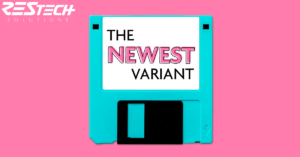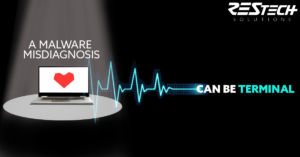Data Security & Privacy (Compliance)
October 2022 - Refresh
Value Proposition: Data is critical to companies like yours, and it’s increasingly become the target of cybercriminals looking to profit from its theft. If a breach includes legally protected data such as Personally Identifiable Information (PII), the ensuing penalties can compound the loss. Discover how your organization can proactively implement measures to detect and prevent cyberthreats before they result in a costly incident.
Tips/Info
Putting off or ignoring your system updates can weaken your security defenses, which may cause you to fall out of compliance with relevant regulations. These updates often include crucial security patches that fix or resolve flaws and vulnerabilities. As cybercrime continues to increase and evolve, keeping your systems up to date is a critical component of a strong defense against cyberattacks and is essential to maintaining regulatory compliance.
Contact us to find out more about automated patch management.
In the past, it took a physical installation to contract a computer virus. Today it is possible to become infected by opening the wrong email or clicking the wrong link. This simple act could expose your customers’ private information and result in compliance violations as well.
Reach out to learn how you can shield your clients’ private data from the latest variants of malware.
Encrypting data is the best way to protect files from exposure and theft, particularly when data is in transit. However, most regulatory agencies require that all private or sensitive data be encrypted, whether in transit or at rest. Let’s have a conversation about best practices for keeping your client’s data secure.
Take some time to re-evaluate how you control and manage your user permissions. Who needs access? Who needs administrative rights? Do you have inactive users and are you segregating your data?
Scheduling a data risk analysis will help eliminate these unknowns and give you a safer solution to managing your data.
Medical records are a hot target for cybercriminals as they provide a treasure-trove of data. Using just a few pieces of prized patient information, criminals have found lucrative ways to scam the system, becoming a true pain in the neck.
Find out how we can help you overcome the most common cyber threats and achieve your compliance obligations.
Employees are the main targets of phishing attacks, which can lead to serious compliance concerns when PII and other sensitive information is exposed. Empower your employees with ongoing compliance training, so they can meet compliance requirements for the protected information they handle.
Contact us today to implement a comprehensive compliance program for your team.
If a business processes credit cards of any kind, it must comply with regulatory standards. Not only is it required by law, but it’s also a best practice for keeping you and your customers safe.
Would your organization pass an audit with flying colors? Let’s review your protocols to ensure they are in line with current regulations.













